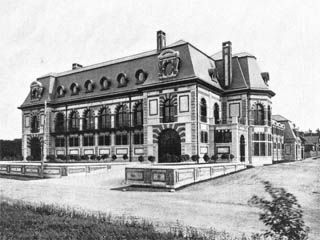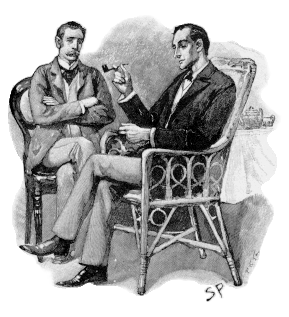More valuable safety lessons for your children, from The Book of Accidents (1831):
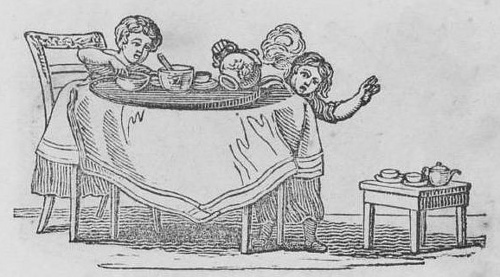
“Little children who can just reach to the top of a table, often endeavor to drink from the spout of a tea-pot; and in consequence scald their mouths and throats, and die miserable deaths in a few hours.”
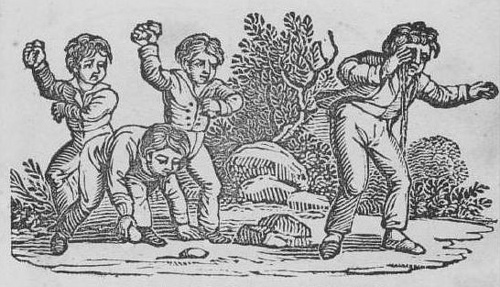
“Wicked and malicious boys often throw stones, by which they not only hurt and maim one another, but often knock out an eye and are disfigured for life.”
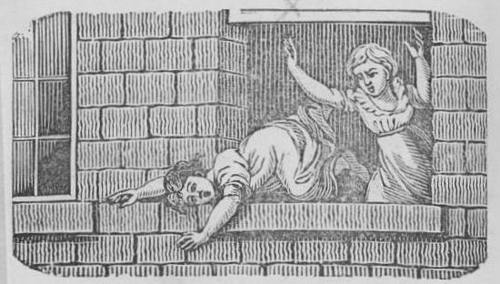
“Hundreds of children are killed every year by leaning out of windows. … In another moment [this little girl] may be dashed upon the rocky pavement below, to be picked up by her parents a mangled corpse.”
Bonus parable: “The writer knows of a little boy who was very fond of being in the kitchen, that he might see how Johnny-cakes and pies, and all such things were made, and from his talkativeness occasioned considerable trouble. In the absence of the cook for a short time, what should he do but go and sit himself down into a kettle of boiling hot water! His screams soon brought his mother, and with difficulty his life was saved.”





